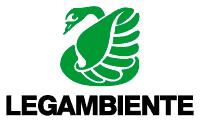Reject Windows 7 to build a free society based upon free software
When you turn on your computer, you're making a political statement. If, like most people, your computer boots Microsoft Windows, the statement you're making is that transnational corporations should control access to the most powerful public media that ever existed.
In 2007, the Green Party and Greenpeace issued warnings about the tremendous threat posed to the environment by the disposable computer mentality promoted in Microsoft's $500-million Windows marketing campaign. Windows steep hardware requirements meant that to use it, many people had to throw their current computer into a landfill and buy a new one.
While these environmental consequences alone are sufficient reason for many to reject newer versions of Windows, the disposable computer mentality is a symptom of a larger problem--one that should concern all social activists. One problem is the dependency of activists on software owned and exclusively controlled by entities that design their software in ways directly opposed to grassroots social change.
No matter what kind of specific change they are working for in society, activists need the freedom to organize and communicate. Yet each time an activist turns on a Windows computer, she is nominating Microsoft as exclusive gatekeepers to this freedom.
Microsoft Windows was engineered from the ground up as a Digital Restrictions Management (DRM) and Treacherous Computing (TC) platform. Microsoft hides these defects under more benign-sounding names like "Digital Rights Management" and "Trusted Computing" -- the fact is that Windows is designed to monitor what people do, and in particular to limit what they can do with digital media files.
These limits obstruct common and legally protected uses like sharing news story clips and copying text from government documents. Windows has also been designed for easy updating from a central authority, so that new restrictions can always be imposed, disabling certain features or programs. When a user clicks OK to install Windows, Microsoft claims--illegitimately--that she is consenting in advance to this control. It is the computational burden of this constant monitoring in combination with the requirement that all hardware support these software restrictions that is driving many of Windows steep hardware requirements, leading to the environmental consequences that groups like the Green Party and Greenpeace have described.
Fortunately, people do not have to assent to these restrictions on their freedom. Instead, they can reject Microsoft Windows in favor of the GNU/Linux operating system, a system built from free software -- free software is about freedom, not price. It is software whose authors intentionally extend users the freedoms to study, copy, modify and share their work. While proprietary software functions by dividing people and using technical restrictions to block communication between them, free software was created with social solidarity and sharing in mind.
Free software is often usable on older hardware, more secure, more easily customized, less expensive, and available in more languages. These are substantial benefits, but they are all a natural result of the most important considerations--freedom and independence. The celebrated power of the Internet as a tool for political action depends on the ability of ordinary people to have uncensored control over the tools they use to participate in society. If the tools used by activists are proprietary, they will be inherently limited in what they can challenge and change by those who make and exclusively own the tools.
We call on our own supporters and all others who support any organization working for social change to join us in speaking out against these restrictions. As organizations or individuals, you can join us by signing this statement. Together we can resist these efforts to divide and control our communities. We can build a free society, based on free software.
References for this letter:
Environmental Concerns
- Green Party asks: who has the key to your Vista PC?, Green Party UK.
- After Vista, a deluge of E-waste to developing countries, Greenpeace warns, Greenpeace.
Digital Restrictions Management
- DRM in Windows Vista, Bruce Schneier†.
- Windows Vista, HDCP and Digital Rights Management, PCstats.com.
Microsoft Windows Vista
- A Cost Analysis of Windows Vista Content Protection, Peter Gutmann‡.
- All Microsoft updates phone home, Heisse Security.
- Vista gives a view of a new world, Michael Geist.
- Buying a new PC? 'Windows Vista Capable' barely hits the mark, Computerworld.com
- NSA Helps Microsoft with Windows Vista, Bruce Schneier.
† Bruce Schneier is an author and specialist on computer security as well as the founder and chief technology officer at BT Counterpane.
‡ Peter Gutmann is a Researcher in the department of Computer Science at University of Auckland, Auckland, New Zealand specializing in computer security.
No longer accepting signatures.











